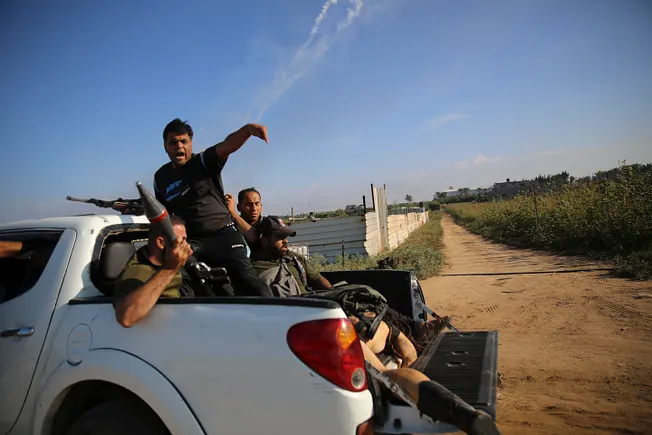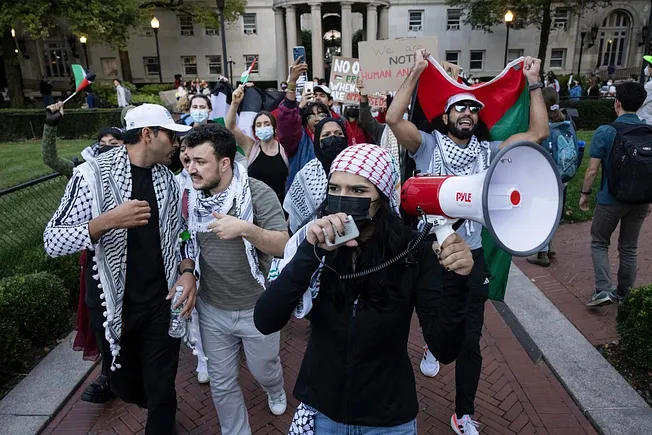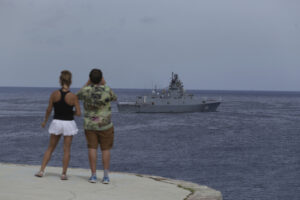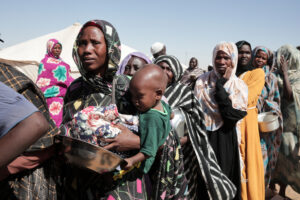Monday Memo | Israel-Gaza Conflict’s Ripple Effects
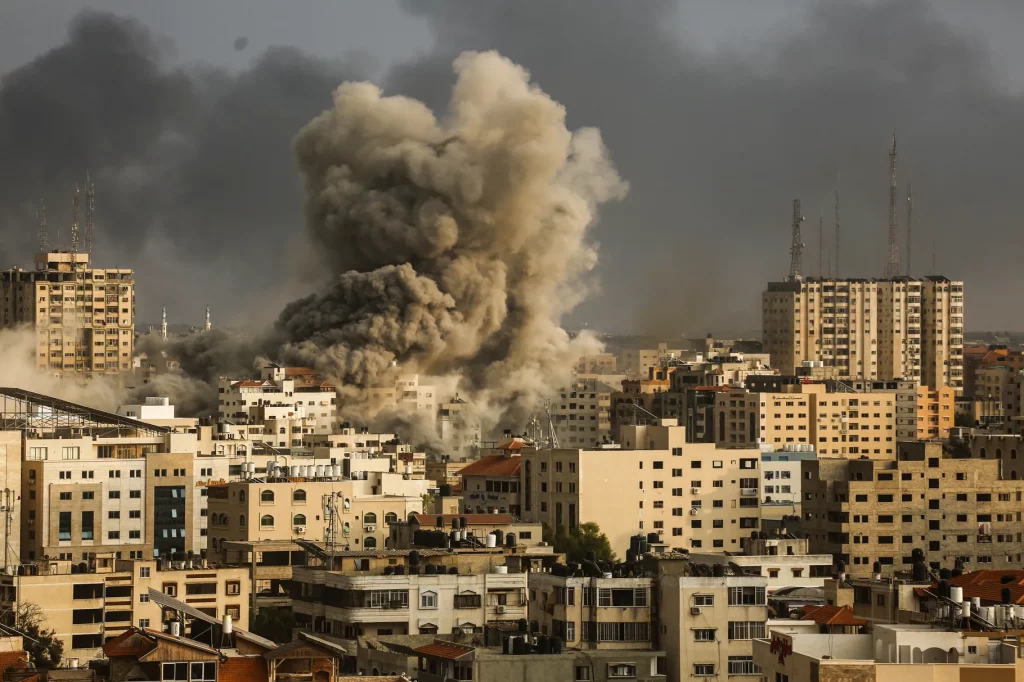
Sameh Rahmi/NurPhoto via Getty Images
World
Israel-Gaza Crisis
On October 7, 2023, a significant escalation unfolded in the Israel-Gaza conflict when Hamas launched a large-scale attack on Israel. This unexpected offensive involved at least 1,500 armed Hamas fighters breaching a border security fence and launching indiscriminate attacks on Israeli civilians and soldiers. In addition to this ground assault, other militants also stormed Israeli beaches using motorboats, while some brought death from the sky by swooping in on paragliders. The toll from these attacks in Israel stood at more than 1,400 people killed, including children, and over 5,000 people injured, according to Israeli officials. At least 32 of those killed in Israel are American citizens, as confirmed by the US State Department. Simultaneously, over 200 individuals ranging from infants to the elderly, have been kidnapped and held hostage in Gaza.
On the same day, Israeli jet fighters launched retaliatory strikes in Gaza. Videos emerged, depicting the bombing and complete destruction of a high-rise residential building and the Al-Sousi Mosque in Gaza City. Israel ordered a “complete siege,” of Gaza by cutting off essential resources, including water, electricity, and fuel. Weeks of continuous bombing of Gaza by Israel including in schools and hospitals have further exacerbated the already dire humanitarian situation. On October 13, the Israel Defense Forces (IDF) issued a call for “all residents of Gaza City to evacuate their homes” and “move south for their protection.” By this point, a staggering 1.4 million Palestinians have been displaced as a result of the ongoing conflict, and the death toll in Gaza has now surpassed 8,000 Palestinians, mostly women and children, with over 22,000 injured, according to the Health Ministry in the Hamas-ruled region.
As Israeli forces entered Gaza on Friday, October 27, to confront Hamas, phone and internet services were severed. This caused chaos for Palestinian civilians, leaving rescuers driving blindly toward explosions. Wounded individuals were left unattended in the streets. Connectivity was restored on Sunday, October 29, around 4 AM, as reported by Abdulmajeed Melhem, the CEO of Paltel Group, the main Palestinian telecommunications company. Nonetheless, the service remains restricted due to an Israeli airstrike on a telecommunication tower early in the conflict.
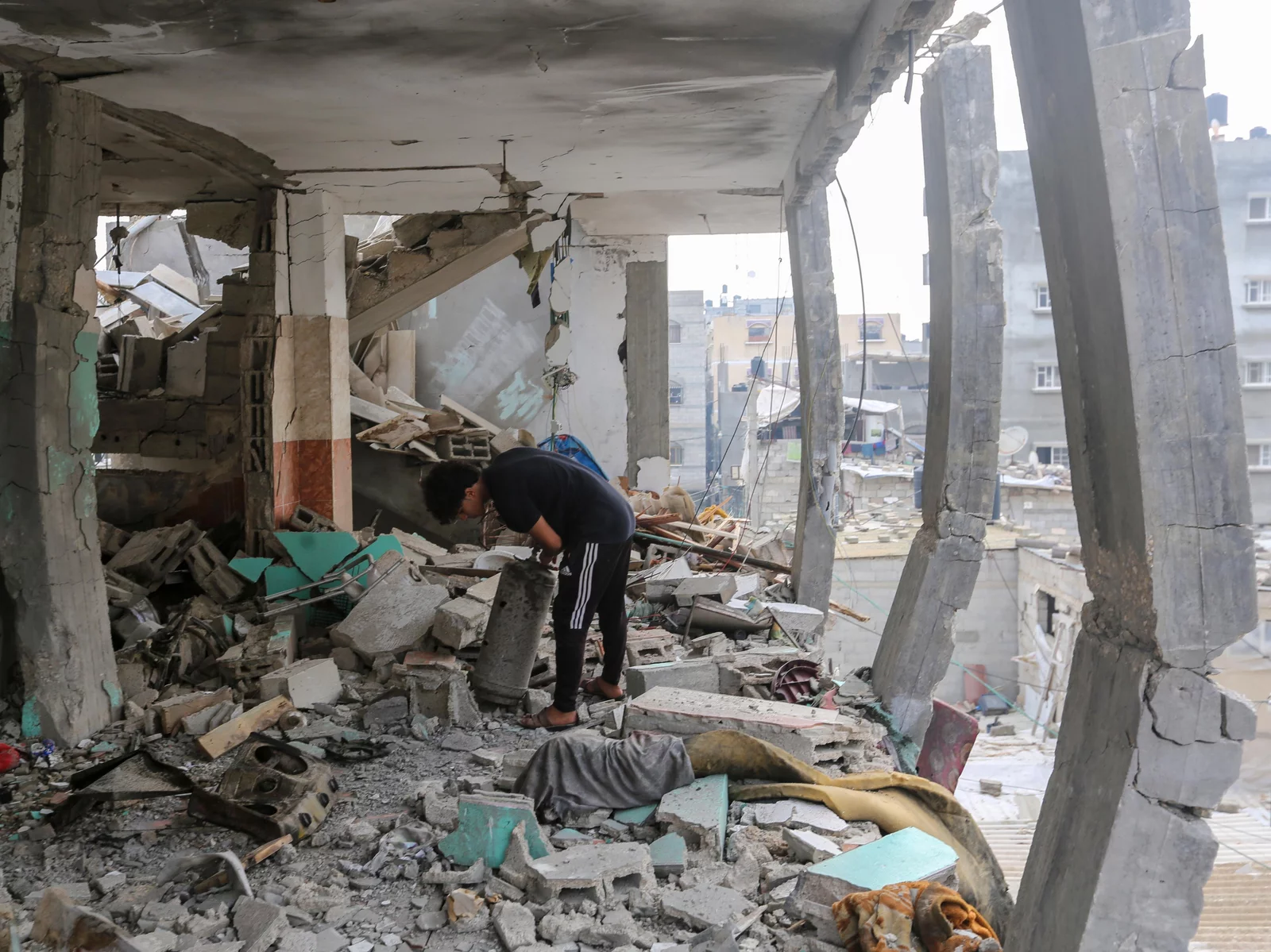
Amid the Israel-Gaza conflict, various world powers responded differently to the situation. China’s expression of neutrality was evident in its statement condemning “all violence and attacks on civilians.” In contrast, both United States President Joe Biden and British Prime Minister Rishi Sunak expressed their solidarity with Israel during their visits to Tel Aviv on October 18 and October 19, respectively. Furthermore, Indian Prime Minister Narendra Modi demonstrated his support for Israel through a tweet, offering his “thoughts and prayers.” On the other hand, neighboring countries Egypt and Jordan have criticized Israel’s actions against Palestine. However, both countries have declined to accept refugees, citing concerns about the potential disruption of regional peace.
While many Western governments have shown strong support for Israel, tens of thousands of protesters worldwide have rallied in support of Palestine. Simultaneously, Jewish communities around the world have organized solidarity rallies for Israel.
The US
Israel-Gaza Conflict Ignites Tensions on US College Campuses
Tensions stemming from the Israel-Gaza conflict have extended to US college campuses, resulting in confrontations between pro-Israel and pro-Palestinian student groups. At the University of Washington in Seattle, a substantial number of pro-Palestinian protesters chanted slogans such as “Resistance is justified.” Meanwhile, at Columbia University, hundreds of students from both sides engaged in tense demonstrations. Pro-Palestinian students displayed signs with messages like “Free Palestine” and “To Exist is to Resist,” while pro-Israel students silently exhibited posters featuring the faces of Israeli hostages held by Hamas.
At NYU, just three days after Hamas’s attack on Israel, Law School student body president Ryna Workman sent a newsletter to classmates expressing “unwavering and absolute solidarity with Palestinians in their resistance against oppression toward liberation and self-determination.” Workman placed the blame for “this tremendous loss of life” on “Israel’s apartheid regime” over Palestinians but did not mention Hamas. This letter quickly circulated widely but faced extensive disapproval. Consequently, Workman lost a job offer from a law firm and was removed from their leadership position. Furthermore, NYU Law Dean Troy McKenzie clarified in a message to the law school community that Workman’s remarks were personal and did not represent the views of the school or its leadership.
At Harvard, a coalition of 34 student organizations released a pro-Palestinian statement, asserting that the Israeli regime bore complete responsibility for the unfolding violence following the deadly invasion by Hamas. This declaration triggered a significant backlash from university professors and federal lawmakers. Notably, CEOs such as Bill Ackman and Jonathan Newman called for the disclosure of the signatories’ names to avoid hiring them. On October 11, a mobile billboard truck circled the Ivy League campus, publicly displaying the names and faces of the signatories, branding them as “Harvard’s biggest antisemites.” This pressure led to some groups and individuals retracting their signatures, and the list of signatories was eventually removed from the public domain due to safety concerns. Harvard President Claudine Gay condemned the atrocities committed by Hamas but dismissed requests to penalize or identify students who endorsed the pro-Palestinian statement.
University administrations’ responses vary, ranging from open support for Israel/Palestine to maintaining a neutral stance, while some choose to refrain from making any comments. The multitude of opinions and the heightened tensions on campuses raise safety concerns, calling for a judicious approach from universities.
New York
NYC Demonstrations Call for Cease-Fire in Gaza Conflict
New York City is home to the world’s largest Jewish population of any city, with nearly half of its residents living in Brooklyn. On October 10, New York City Mayor Eric Adams took a stand against antisemitism during the “New York Stands with Israel” rally held outside the United Nations. In a display of solidarity with Israel, he addressed a diverse Jewish audience.
On October 13, at the city’s largest synagogue, Mayor Adams critiqued celebrities for perpetuating antisemitism and urged them to actively combat the growing antisemitic sentiments. He specifically identified American college campuses as contributing to the problem, labeling them as “hate breeding grounds.” He also emphasized the importance of ensuring the safety of the city’s substantial Jewish community.
On that same day, against the backdrop of the Middle East conflict, thousands gathered in Times Square and Brooklyn. Participants in these events expressed their solidarity with Palestinians. In Times Square, protesters voiced their opposition to Israeli actions in Gaza, while in Brooklyn, the Jewish Voice for Peace called for the US government to actively advocate for a ceasefire. Despite the heightened emotions and the former Hamas leadership calling on Muslims worldwide to protest in support of the Palestinians, New York officials and the NYPD stated there were no immediate threats associated with the demonstrations.
On October 28, the “Flood Brooklyn for Gaza” protest witnessed a sea of pro-Palestinian demonstrators marching from the Brooklyn Museum to the Brooklyn Bridge, effectively filling the streets of Brooklyn with their impassioned call for the US government to cease its aid to Israel. The significant rally reached a point where it necessitated the temporary closure of all lanes on the Brooklyn Bridge. Later on the same evening, the iconic Grand Central Terminal in New York City played host to a substantial gathering of hundreds of protesters. Their collective demand was clear: an immediate cease-fire amid Israel’s escalating attacks on the Gaza Strip. Clad in black t-shirts emblazoned with the messages “Jews say cease-fire now” and “Not in our name,” approximately 200 protesters were detained by officers from the New York Police Department and escorted out of the station with their hands secured.
Happening This Week
November 6, 1:00 PM-3:00 PM
The Center for Multicultural Education and Programs presents “UndocuZone,” an online session that offers a concise yet comprehensive exploration of US immigration policies. This session delves into the various challenges encountered by undocumented communities and equips attendees with strategies for effectively supporting these communities, with a particular focus on the higher education environment. Kindly RSVP to join.
November 11, 9:30 AM-8:00 PM
NYU’s Institute for Public Knowledge and Public Books cordially invites you to a full-day symposium titled “The Big Picture: What’s at Stake in Trump’s America.” This event offers an insightful exploration of the ascent of Trump and America’s shift towards authoritarian governance. Serving as the culminating event of a series of essays featured daily on Public Books in the preceding weeks, this symposium brings together distinguished intellectuals to engage in in-depth discussions on the far-reaching consequences of Trump’s America across a wide spectrum of subjects. For additional details, please visit this link.
November 13, 5:30 PM-7:00 PM
Join us for a captivating Book Talk on “The Long Winter of 1945: Tivari,” taking place in the inviting setting of the Great Room at 19 University Place, New York, NY 10003, from 5:30 pm to 7:00 pm. This book presents a poignant narrative that uncovers the tragic massacre of unarmed Albanian recruits by Serbian and Montenegrin partisans, and it does so through a vivid and compelling storytelling approach. Light refreshments will be thoughtfully provided. Kindly RSVP to confirm your attendance.
Career Development Opportunities
Boren Fellowship Info Session (Graduate Students Only)
If you’re passionate about pursuing a career in government service and eager to engage in intensive language training abroad, this session is your opportunity to gain insights into the Boren Fellowships program, its eligibility criteria, and the supportive cohort-based advising structure we offer. The virtual information session is scheduled for November 1 from 5:00 to 5:45 p.m. We kindly request that you RSVP to secure your spot.
Spring 2024 Research and Events Internship, Center on the United States and Europe, Foreign Policy
Considering a career in Public Policy? Explore the Spring 2024 Research and Events Internship offered by Brookings, a prominent think tank. This 12-week internship is your opportunity to collaborate with global experts in government and academia, as well as to explore various departments, including communications and human resources. This internship is well-suited for undergraduate juniors and seniors, as well as graduate students with an interest in Foreign Policy. You’ll receive compensation at a rate of $17.00 per hour for a weekly commitment of 20 hours. Engage in virtual meetings, and professional workshops, and expand your network throughout Brookings. Don’t miss out – applications are open until November 5, 2023. To apply for this program, simply click here.
The White House Internship Program
Join a public service leadership and development program that welcomes aspiring leaders to partake in a transformative experience while supporting the endeavors of the Biden-Harris Administration. Each year, dedicated individuals from across the nation seize this opportunity to enhance their skills and contribute to the governance of our country. The application window for the Summer 2024 program, which spans 10 weeks from June 10th to August 16th, opens on October 16th, 2023, and closes on November 10th, 2023. Applications are reviewed continuously as they are received. To learn more about this exceptional opportunity and the application process, visit this website.

Ziyun (Charlotte) Liao served as JPI’s social media officer and is the writer behind JPI’s Monday Memo. Currently, she is a first-year MA student in NYU’s International Relations program. Her academic journey began with a Bachelor’s degree in Translation from The Chinese University of Hong Kong, Shenzhen. Before embarking on her NYU adventure, Charlotte garnered invaluable experience in the realms of public relations, communication, and the nonprofit sector. Her scholarly pursuits are driven by a passion for feminism, justice, and human rights. During her moments of leisure, Charlotte indulges in photography, embarks on culinary adventures across the city to savor delectable cuisine, and occasionally unwinds with some Nintendo gaming.


